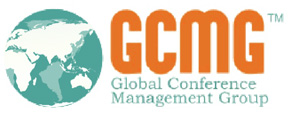
WhatsApp: +919778826682




IF YOU ARE ORGANIZING A CONFERENCE, THESE ARE FEW SUGGESTIONS WHICH COULD HELP YOU!
ACKNOWLEDGE GCMG IF IT HELPS YOU. THANKS!
Organizing a conference may not be everybody's responsibility, but when you do come up with a situation which requires your handling or being the chair for a conference either Local or International; then these are the basic guidelines you should keep in mind.
First is to get started by forming a committee to handle the various aspects of the Conference as detailed below. A committee would give you a shared responsibility especially when there is financial accountability involved. Another option is to get the services of a professional conference organizer who would help the committee in organizing the conference. The next option is to have the committee as well as a Professional Conference Organizer (PCO) to help you and the committee. The PCO could also help you in making a budget for the conference on account of their experience with many conferences and also offer ideas for mobilizing revenues required through various options.
Secondly, create a conference website which in this digital world is most essential to convey & seek information in the quickest possible time frame since the time required to organize a conference may be anywhere between 3 months to a year. Either way, a website would help cover all the main areas of interest to your potential delegates within the home page itself through links to different pages.
The main areas to be covered in your conference website would be the theme of the conference or the title of the conference, the organizing committee members who have responsibility for various aspects like academic programs, faculty or speakers, invitation, e brochure of the conference which would also have registration forms - downloadable or online registration formats, venue details, accommodation options, etc and a contact us page. A point wise list or checklist for organizing your conference is given below. The next priority would be to identify the personnel who would form the conference secretariat to help you in your role if you are a conference chair or Organizing Secretary for the conference after which you can run through with the following checklist.